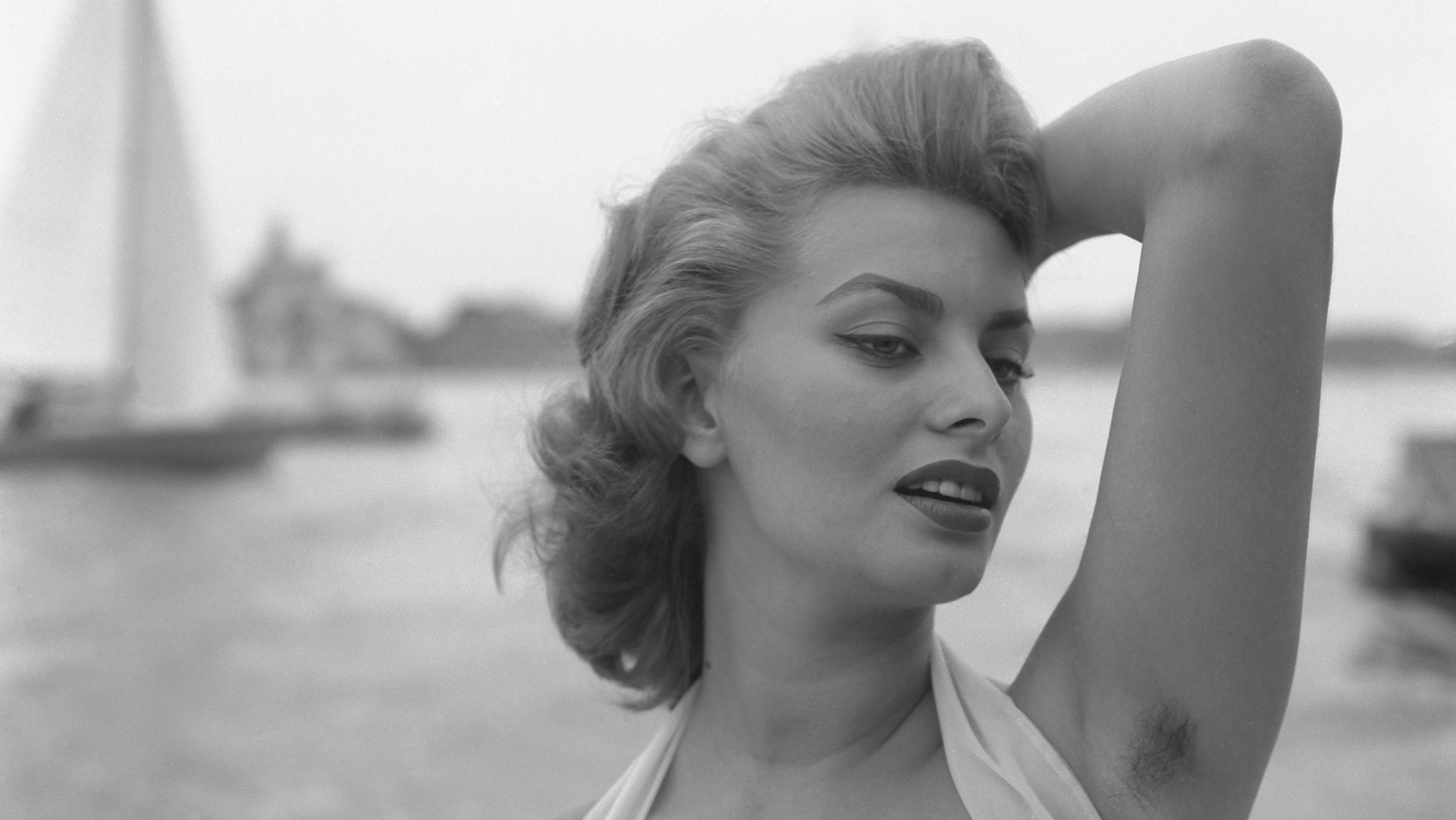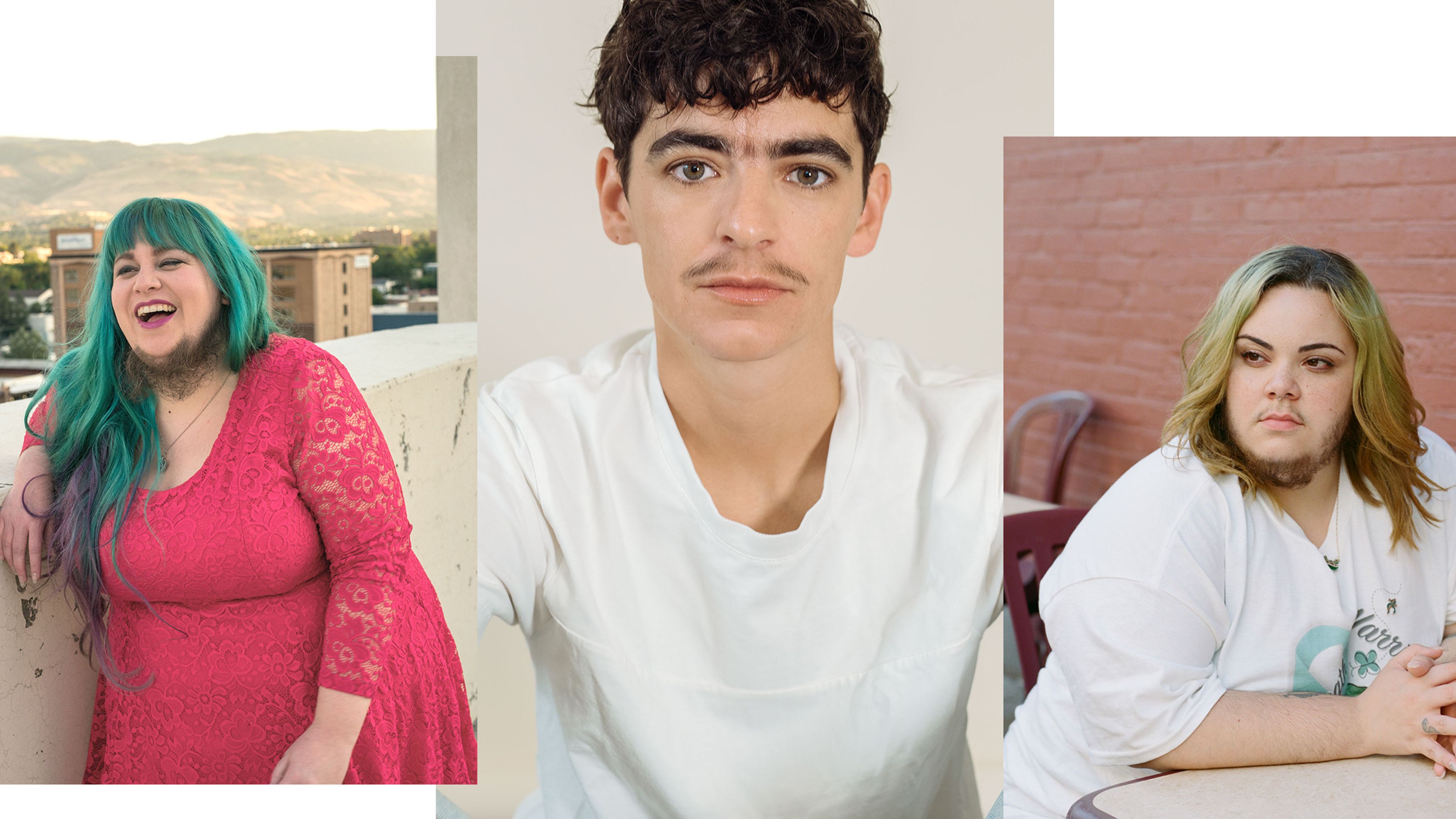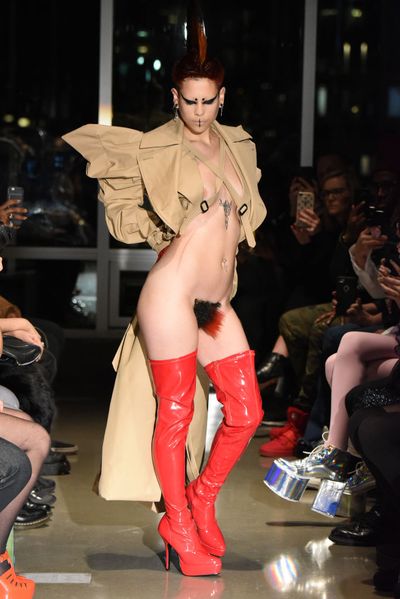Why Is Women's Body Hair Still Offensive?
In an era of "body pos" social media and stick-it-to-the-patriarchy politics, women's views on shaving, waxing, and lasering continue to evolve.


Sprinkled in between snaps of smoothie bowls and selfies, more #bodyhair pics have probably popped up in your Instagram feed lately. Sift through the hashtag and—among guys showing off Hasselhoff-ian chests—you’ll see women proudly displaying their leg, pit, and arm fuzz. Related hashtags #dyedpits, #bodyhairdontcare, and #girlswithhairyarms boldly caption thousands upon thousands of hair-proud posts. We’re not just talking about stubble from when you forget to bring your razor to the gym a few times; this body hair is sometimes rainbow colored or glittery—and always intentional.
This is no small corner of the Internet either. Celebrities such as Miley Cyrus, Paris Jackson, and Bella Thorne have posted pictures of their unshaven pits, and mainstream brands and designers have gotten in on the body-hair love too: Adidas model Arvida Byström sported leg hair in a 2017 sneaker campaign, and designer Kaimin recently sent models down the runway with pubic wigs.
Back in 2013, 95 percent of women from ages 16 to 24 removed their underarm hair and 92 percent shaved their legs, but those numbers dropped to 77 percent and 85 percent respectively in 2016, according to Mintel research conducted in the United Kingdom.
As much as I “like” all the body-hair-positive pics that pop up in my feed, I’m not personally ready to embrace the look yet. In fact, I’ve been self-conscious about strands that grow somewhere other than my scalp ever since a boy told me I had the “arm hair of a man” during recess in the third grade.
RELATED STORY

While most of my elementary-school memories faded at the same rate as the quality of my cursive, this one had staying power. As I got older, I subjected my arms to every removal method I could find: In college, I adopted a weekly depilatory-cream regimen, then played dumb when my roommates wondered why the drain clogged so quickly. Once I got sick of buying Drano, I moved on to epilating, which hurt like hell and sometimes left little red bumps. After some trial and error, I mostly stuck with at-home wax strips, which, despite a few patchy results—waxing your own triceps is as difficult as it sounds—mostly got the job done.
I’ve been no less hostile toward hair elsewhere on my body: I shave my legs through the dead of winter, I’ve lasered my pits until they’ve smelled like they were on fire, and I’ve gotten so many Brazilian waxes that a number of my pubic hairs have given up on growing back. I’d love to say that my commitment to hair removal is just a personal beauty preference, but there’s more to it: Like a lot of Americans, I associate smooth, hairless skin with attractiveness. Frankly, body hair isn’t the feminist sword I’m willing to fall on.
Despite the increased visibility of body hair, clean-shaven legs and armpits are still among the strongest beauty norms in Western culture. If you look at women of all ages, “surveys consistently estimate that 93 to 99 percent remove their body hair regularly,” says Breanne Fahs, Ph.D., a professor of women and gender studies at Arizona State University. “You don’t see that kind of conformity to nearly any other social norm.” It’s true: While it’s acceptable to forgo makeup or skip stilettos in favor of sneakers, “hair removal is a standard that really sunk its teeth in,” she says.
Get exclusive access to fashion and beauty trends, hot-off-the-press celebrity news, and more.
“I write about a lot of controversial issues, but nothing enrages people quite like body hair.”
In fact, when Fahs interviewed her students about their thoughts on body hair for a study published in Psychology of Women Quarterly, the words disgusting, dirty, and gross popped up regularly. And when some women tried growing out their body hair for 10 weeks, they were met with hostility. One woman’s boyfriend threatened to stop having sex with her; another’s boss made offensive lesbian jokes. “Never underestimate the difficulty of going against social norms,” one student wrote at the end of the assignment.
“Difficulty” may be putting it lightly. Byström received rape threats for showing off her leg hair in that 2017 Adidas campaign, and the ad on YouTube is accompanied by comments calling her an “ape woman” and “lazy shit.” “I write about a lot of controversial issues, but nothing enrages people quite like body hair,” says Fahs.

'Models at the Kaimin runway show wore merkins, or pubic hair wigs.'
Indeed, body hair remains much more than an indication we’re mammals; it’s loaded with meaning. We equate body hair with power and masculinity, and many are intimidated when women showcase those traits, explains Merran Toerien, Ph.D., professor of sociology at the University of York in England. “It calls into question the idea that men and women are opposites, and most of society still believes you’re not supposed to blur that boundary.”
How then to explain this recent trend—and the fact that some women report feeling more like women once they stop shaving? “It all started because a friend was growing out her armpit hair and asked me to join her for support,” says Heather Martin, 30, a small-business owner in Port Richey, Florida. “But the longer I had the hair, the more I enjoyed the fact that it was part of my womanhood.” It’s been two years and Martin doesn’t plan on going back to shaving (and she feels fine in the Florida heat, thankyouverymuch). Toerien similarly notes that some women say they feel more, well, “womanly” with body hair, which makes sense when you consider that hair starts growing during puberty, around the same time girls get their periods, she explains. Combine that with the current sociopolitical climate, in which many women have banded together to challenge the patriarchy, and the hair-pride trend starts to make more sense.
That said, a full-scale shift in women’s grooming practices is unlikely to happen anytime soon. Sales of women’s hair-removal products dropped only 3 percent between 2015 and 2016, and that could just be an indication that some women are grooming more selectively—and perhaps less frequently—than they used to. According to a 2016 study published in JAMA Dermatology, the majority of women reported grooming their pubic hair at some point during the year, but 23 percent said they remove it only every three to six months, and 46 percent did so before a vacation.
We equate body hair with power and masculinity, and many are intimidated when women showcase those traits.
Waxing salons are also offering moderate options that don’t strip every single strand. Bliss spas offer a “betweeny” bikini wax for those who don’t want to bare all, and Uni K Wax studios do partial leg and arm waxes for a more natural look. Plus, says Summer Hartshorn Vasilas, cofounder of the Waxing the City chain, if you’ve been waxing for a while, the hair can eventually grow in sparser and softer, so you might not feel the need to remove it as often. And the decision to let one’s body hair grow doesn’t seem quite as loaded when the strands are less noticeable—or less numerous.
Even I, former destroyer of all body fuzz, now welcome a little evidence that I’ve indeed gone through puberty: I prefer my bikini area slightly grown in, and I don’t mind a little underarm hair now that the patch has thinned, thanks to the miracle of laser hair removal. I’ve also given up on the arm waxing in the last year, and I recently got a triceps tattoo, which I never would have done a few years ago, as it draws attention to a downy area. (Take that, third-grade bully.) True, I may not be Instagramming my pits any day soon, but it feels nice to acknowledge I’m a grown woman who (gasp!) has hair on places other than my head. I know, hardly overthrowing the patriarchy, but I’d say it’s at least worth a double-tap.
This article appears in the June issue of Marie Claire, on newsstands now.
Kiera Carter has a decade's worth of experience covering fitness, health, and lifestyle topics for national magazines and websites. In a past life, she was the executive digital editor of Shape and has held staff positions at Fit Pregnancy, Natural Health, Prevention, and Men’s Health. Her work has been published by Marie Claire, Cosmopolitan, Travel + Leisure, and more. She spends her free time boxing, traveling, and watching any movie or show with a strong female lead. She is currently based in New York.
